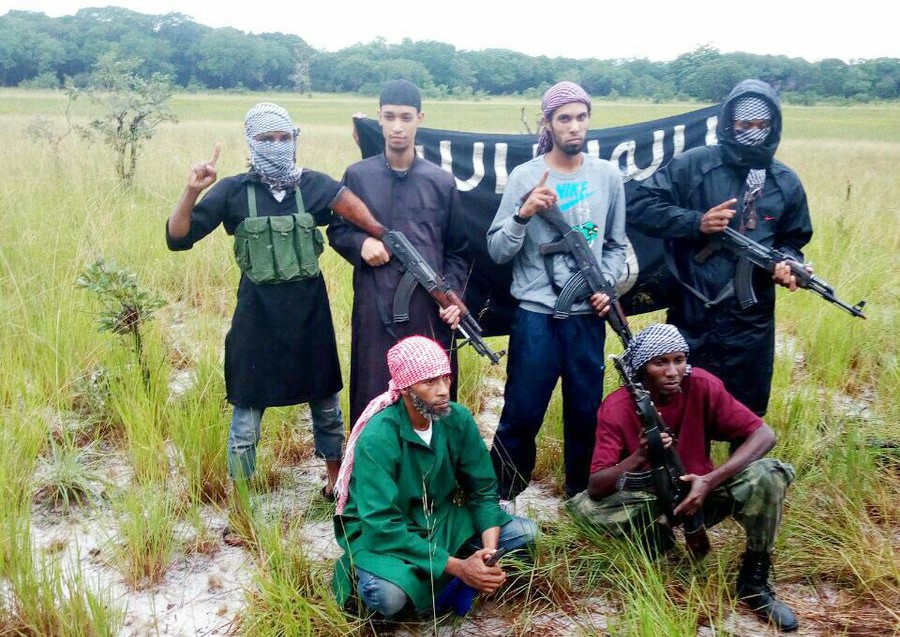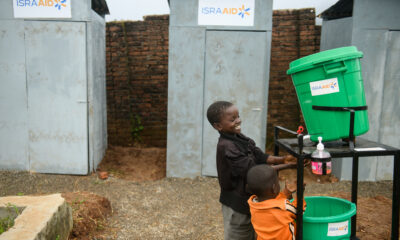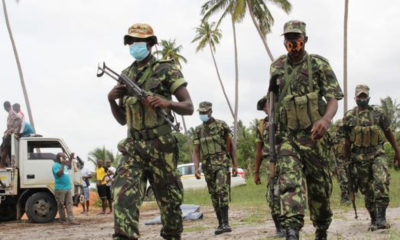
News

Mozambique jihadis bring terrorism to SA’s doorstep
While the South African government is fixated on Gaza and accusing Israel of genocide at the International Court of Justice, it’s largely indifferent to the murder and mayhem perpetrated by terrorists on our eastern border.
Once a haven of stability in a turbulent continent, southern Africa has been reeling from an Islamist insurgency in Mozambique since 2017. In recent weeks, the jihadist rebels al-Sunna wal-Jamma (ASWJ), also known as the Islamic State Mozambique, have burned churches, killed Christians, and displaced thousands in the Macomia, Chiure, and Mecufi districts in the troubled northernmost province of Cabo Delgado.
It poses a significant if indirect threat to South Africa, analysts agree.
Professor Hussein Solomon at the University of the Free State said, “Back in 2017, the violence [in northern Mozambique] came from a tiny group of Salafists [fanatical Islamists] and the local community – fellow Muslims – asked the government to get involved. These rebels use Islam as a vehicle for political mobilisation.”
Tomás Queface, an analyst based in Mozambique, said, “The attacks on churches in Cabo Delgado aren’t a new feature of the conflict. Insurgents from the north burned churches in Nampula province in 2022. This time, the insurgents began what they called a ‘preaching campaign’ in the predominantly Christian southern district headquarters, which led them to kill, and burn churches situated there. Mozambican troops didn’t engage them, and we can question the capacity of Mozambican forces to respond to this Islamic State threat.”
“Attacks on Christians aren’t a new thing,” said Professor Theo Neethling from the department of political studies and governance at the University of the Free State. “Many locals, including Christians and Muslims, didn’t welcome the ASWJ movement’s views in the past, and this resulted in conflict. It tried to force locals to follow its radical beliefs, and prevented villagers from attending hospitals and schools, which the movement interpreted as secular and un-Islamic. Efforts to repress the conflict failed.”
Jasmine Opperman, an expert on extremism in Africa, said the latest attacks demonstrated a well-co-ordinated strategy, estimating about 500 to 800 insurgents to be active in Cabo Delgado. “The push down south was clearly directed at specific targets,” she said. “More than 12 churches have been destroyed, and the N1, the main road linking Cabo Delgado to the rest of Mozambique, has been targeted.
“The Cabo Delgado insurgency has evolved into a full-blown Islamist extremist presence that’s linked up with Islamic State,” Opperman said, “but we still have people trying to deny this reality. We have seen beheadings – this is part of the Islamic State propaganda machine sending a message. The insurgents have been born and bred in these communities, hence their interaction with communities is much easier.” However, Opperman said there were no known links between ASWJ and Iran or Hamas.
Neethling said it was almost impossible to tell what connections ASWJ had with the outside world, “because we actually know little about this movement. There’s no documentation, and it won’t openly declare it, but the fact is that very much like Boko Haram in Nigeria for many years, porous borders have opened the way for young immigrant foreigners from countries in the region, specifically Tanzania, Somalia, and the Great Lakes region. So there’s been regional support for ASWJ from other Islamists.”
There are reports that Samim (the Southern African Development Community – SADC – mission in Mozambique) – in place since 2021 – is considering withdrawing. Opperman contended that without Samim and Rwandan forces in Mozambique, the situation would be far worse. But she cited lack of intelligence sharing and other co-ordination between the various forces in Mozambique as problematic.
So, is South Africa at significant risk? And is the country doing enough to counter extremists?
Said Neethling, “The threat to South Africa is indirect. For the very first time, we have an insurgency in southern Africa,” long the most stable African subregion. “What’s more, the SADC force isn’t capable of getting a grip on the issue in northern Mozambique, and the conflict is ongoing. An investigative journalist has exposed the support insurgents receive from areas around Mbombela [formerly Nelspruit]. That’s also a concern.”
Said Queface, “This is a complicated question because the insurgents have been mostly confined to northern Mozambique. But Islamic State is an international organisation and it has links with South Africa, Tanzania, and the Democratic Republic of the Congo. The potential threat is having some South African citizens involved in the insurgency in Mozambique. These people might potentially go back to South Africa. But I don’t think there’s a real possibility of this insurgency spreading to countries in the region, except for Tanzania, which borders Cabo Delgado.”
“As for threats to South Africa, if we’re talking about the direct spillover of violence – no,” concurs Opperman. “For now, the Cabo Delgado insurgency remains localised in its presence and objectives. But if you’re talking about it finding sympathy among Islamic State supporters in South Africa – most definitely. Financial streams to Mozambique from South Africa have been happening for years, but they are minimal.”
Said Solomon, “South Africa is part of Samim, and the insurgents have threatened consequences for South Africa. There are Islamic State cells in South Africa. Whether they are talking to the ones in Mozambique, we don’t know. There’s always that danger, especially as South African security services are so inept.”
It’s clear that Islamist terrorists not dissimilar to Hamas in Mozambique haven’t disappeared, and continue to threaten surrounding communities, Christian and Muslim alike. South Africa neglects this threat at its peril.








